International Conference in Ashgabat discusses ways to ensure sustainable food systems in the context of climate change
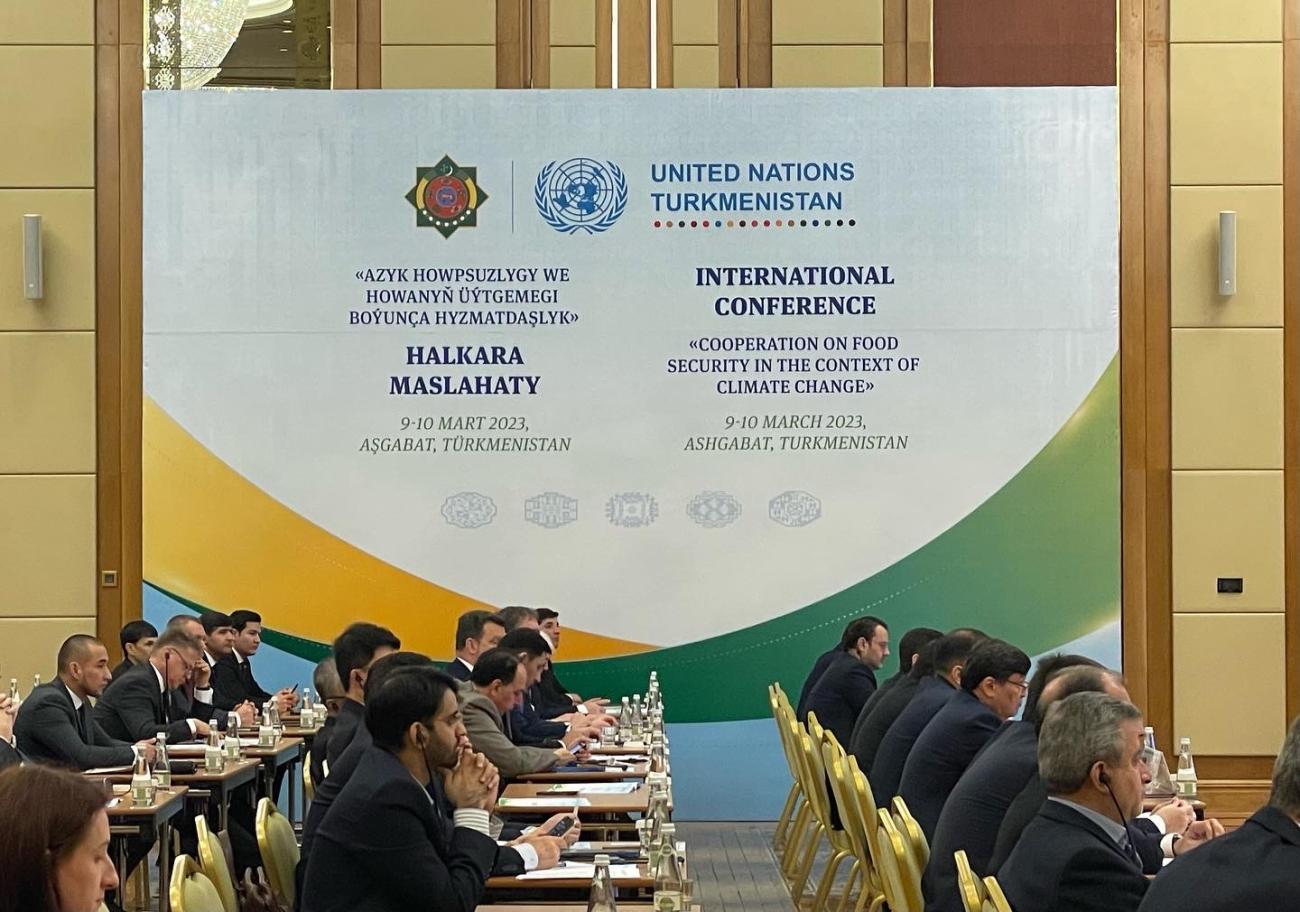
Climate change stays one of the most serious concerns when it comes to food security and nutrition.
Climate change stays one of the most serious concerns when it comes to food security and nutrition. Rising temperatures, extreme heat waves, longer-lasting droughts, deforestation and natural disasters threaten food security of a number of countries causing rivers drying up, reduction of harvest and communities’ displacement. According to the United Nations, the number of undernourished people in the world continued to rise in 2021, when between 702 and 828 million people faced hunger. The number of people suffering food insecurity has increased from 135 million in 2019 to 345 million by mid 2022.
Central Asia countries are encountering food challenges caused by the loss of agricultural production. Scarce natural resource reserves such as water, land and energy are under harsh conditions of climate crisis, which poses unprecedented threat to entire populations of these countries and makes them vulnerable coupled with lack of access to healthcare, quality education, low income, pockets of poverty and unsafe environment to live in. Among the most pressing challenges is the desertification, which threatens the food security and can lead to increased migration flows.
Turkmenistan is experiencing the impacts of climate change, too. According to FAO experts, the estimated level of pressure on water resources (“water stress”) in the country is above 100 per cent. The volumes of water used by Turkmenistan accounts for 144 percent of its available water reserves. Extreme heat waves and droughts pose the near-term threat to agricultural productivity and, hence, to food security.
In Central Asia, there is a recognition of challenges to the food security system. Climate resilience, mitigation and adaptation measures can help reduce negative impacts of climate change on the food system and ecosystems, and international cooperation is at the core of solutions to address regional and global food and climate challenges.
Turkmenistan was one of the countries that called for immediate and effective measures to address the global food crisis and offered to host an international forum on food security in Ashgabat.
In response to this initiative, and given that climate change, food systems and socio-economic development are closely interrelated, the UN Resident Coordinator’s Office (RCO) in Turkmenistan reached out to the Ministry of Foreign Affairs of Turkmenistan (MFA), Ministry of Agriculture and Environment Protection of Turkmenistan (MAEP) and the Sub-regional Office of the Food and Agricultural Organization (FAO) in Ankara to suggest that:
- MAEP and FAO lead the preparations to the Conference;
- Issue-based coalitions on Climate Change and Environment and on Food Systems of the UN Regional Collaboration Platform in the Region of Europe and Central Asia are invited to contribute to the Conference;
- Food security is considered as an outcome of food systems with food and climate impacts going both ways and mismanagement of Water-Energy-Food nexus leading to many drivers of migration;
- The conference looks at existing regional measures to strengthen cooperation in mitigation and adaptation to address climate change and strengthen food security, and at emerging opportunities such as establishment of a regional center on climate technologies;
- Invited keynote speakers from international organizations, including MDBs, provide an overall regional picture with regard to climate change, food systems, available financing instruments and opportunities, as well as impacts of climate change on overall socio-economic development in the region;
- The conference looks at synergies and trade-offs in the paths of the countries to achieve their nationalized SDGs.
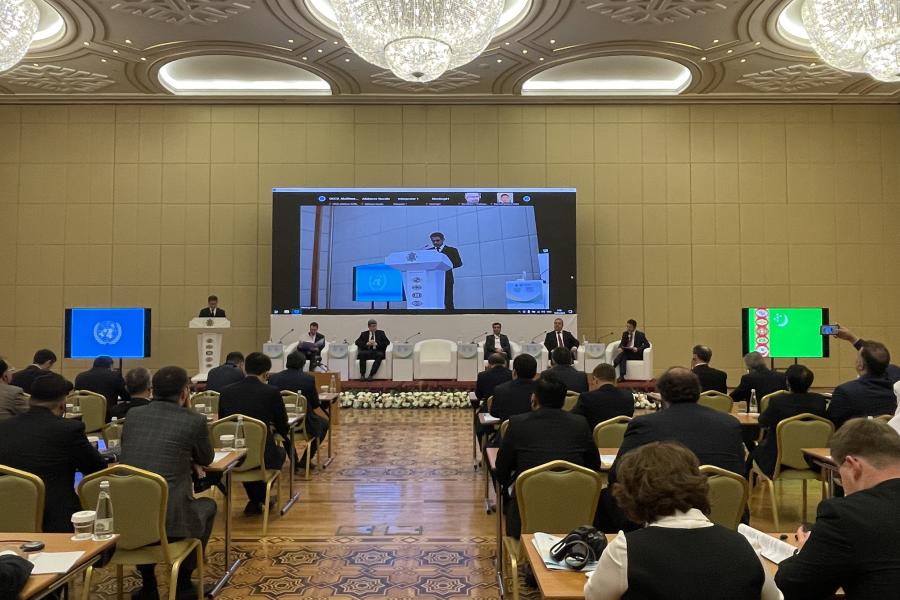
These considerations found strong support from the co-organizes and constituted a basis for the conference “Cooperation on Food Security in the Context of Climate Change” held on 10 March 2023 in Ashgabat under the RCO’s full coordination support.
The high-level participants of the conference representing the Government of Turkmenistan, Central Asian countries, United Nations, other international organizations and financial institutions, such as the World Bank, USAID, GIZ were deeply convinced of the need to take bold and urgent actions to address emerging insecurities for food and nutrition systems threatening progress on the Sustainable Development Goals.
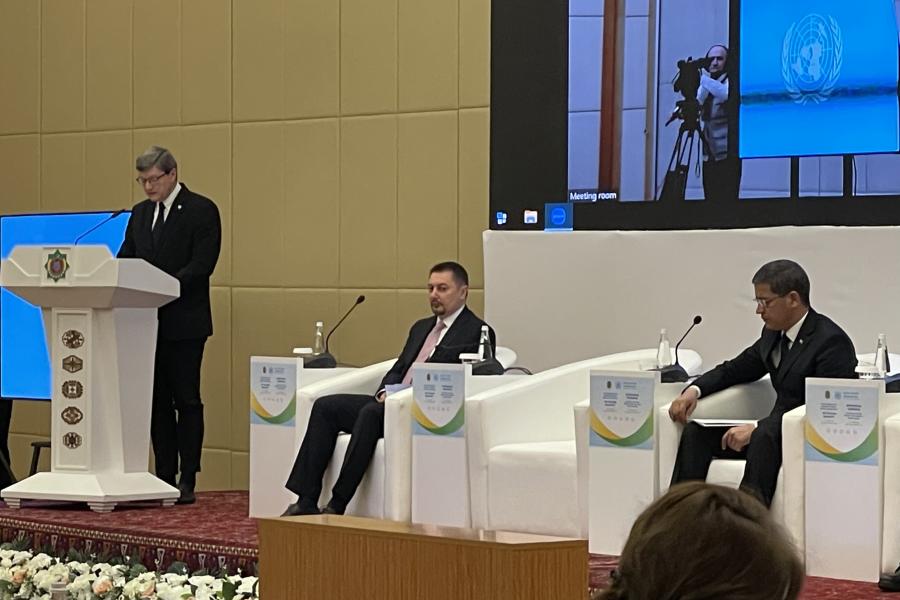
“To boost agriculture in an effective and sustainable manner, events like today’s are important, as they provide a forum to find common and proven solutions”, said Mr. Vladimir Rakhmanin, FAO Assistant Director-General and Regional Representative for Europe and Central Asia.
The high-level presenters from the governments of all Central Asia, FAO, UNEP, World Bank, IMF, WHO, Green Climate Fund and MPTF Office in New York discussed adaptation and mitigation measures, exchanged views on the prospects to increase and mobilize financial resources for targeted projects and programs in this area and to strengthen international cooperation to assist the countries of the region to develop and implement their sustainable food systems and action plans. The participants also discussed effective solutions to address climate change adaptation and mitigation on the regional level, including the establishment of the Regional Center for Climate Mitigation Technologies in Central Asia.
The speakers noted that food systems must become more sustainable to meet the nutritional needs of people in the region and globally by delivering secure, sufficient and affordable food products. And best international practices in application of climate change adaptation measures and mitigation technology transfer can support these processes.
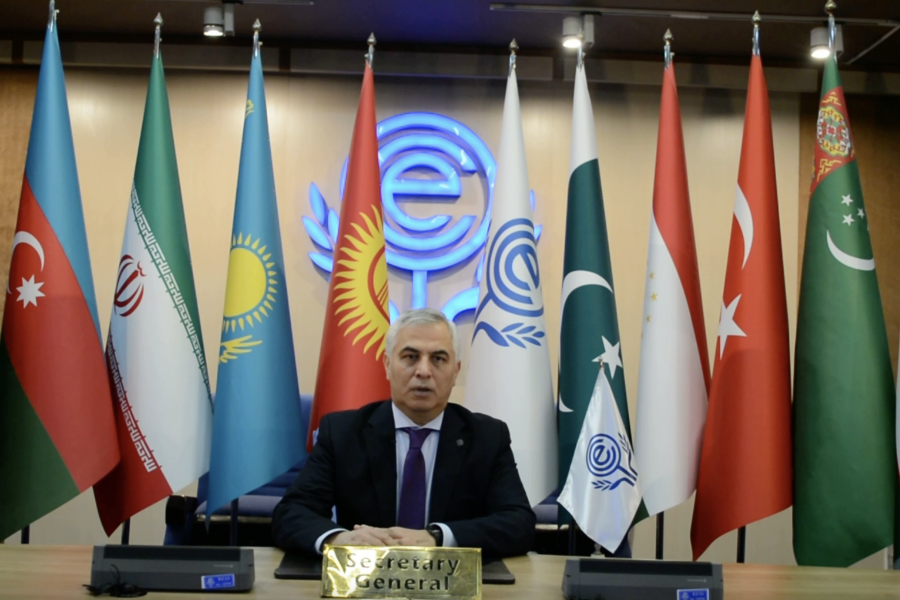
“Food security exists when all people at all times have physical and economic access to sufficient, safe and nutritious food that meets the dietary needs and food preferences for an active and healthy life. Achieving food security and improving nutrition are at the heart of the Sustainable Development Goals. At the same time climate change is already impacting agriculture and food security and will make the challenge of ending hunger and malnutrition even more difficult. There is a strong need to find global and regional sustainable solutions to overcome the existing problems, especially in the field of agriculture as it has a deep impact on the livelihoods of people.”, said Mr. Khusrav Noziri, the Secretary General of the Economic Cooperation Organization.
In anticipation of the UN Food Systems Summit (UNFSS) follow up in 2023, the International Conference also gave an opportunity to the countries of Central Asia countries and beyond to share their experience in development and implementation of the National Sustainable Food Systems Pathways.

In her statements at the conference, Ms. Susan Gardner, Director of Ecosystems Division at UN Environment Programme, called for “work together to identify this critical loss and waste points, and countries to be bold integrating food waste into their national climate plans. We collectively know the problems and we collectively must deliver the solutions, with accountability, with efficiency and with intention to action, not just words.”
In the Conference’s Communique the participants stressed the importance of the following actions: sustain food and livestock production at all scales by optimizing the use of fertilizers, pesticides, and fresh water while minimizing resource waste, pollution, biodiversity loss, and greenhouse gas emission generated within food systems; ensure that the economic, social and environmental bases to generate food security and nutrition for future generations are not compromised; and strengthen regional platforms to improve cooperation around food security and climate change, specifically by advancing the Water Diplomacy and establishing the Regional Center for Climate Technology for Central Asia under the auspices of the UN.
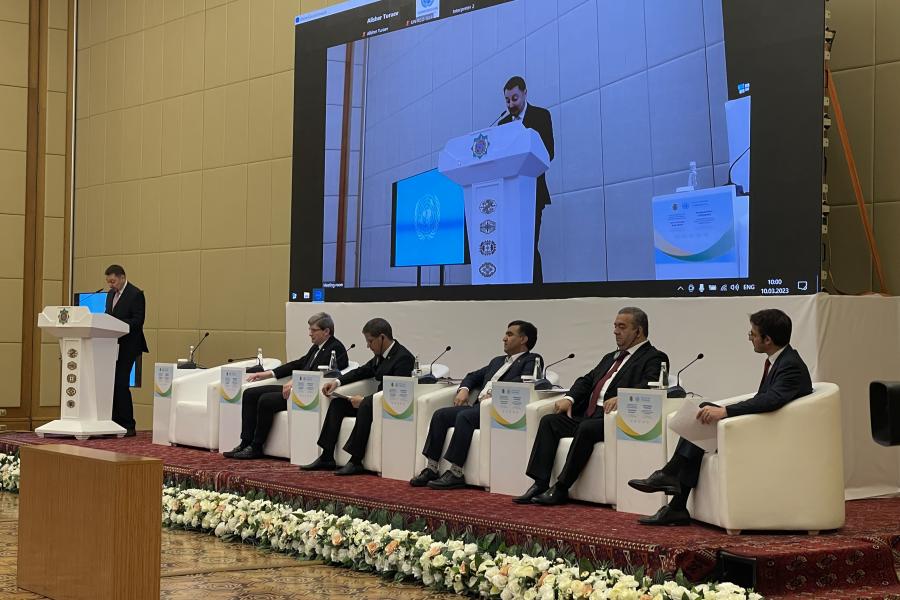
Concluding the conference, Mr. Dmitry Shlapachenko, UN Resident Coordinator in Turkmenistan emphasized that “to ensure food security it is important to seek for solutions seeing it as an outcome of the food system inter-linked with climate, ecosystems, and the socio-economic system. Efforts of each country matter, so do the joint efforts of countries, international and regional organizations, as well as involvement of companies, non-governmental organizations, and research institutions in a broad dialogue.”
The International Conference “Cooperation on food security in the context of climate change” was a vivid example of the convening power of the UN Development System to engage different stakeholders in a critical dialogue to identify joint and coherent solutions to the regional and global problems exacerbated by climate change. This is what the UN is called for under the ongoing reform of the UN development system.




